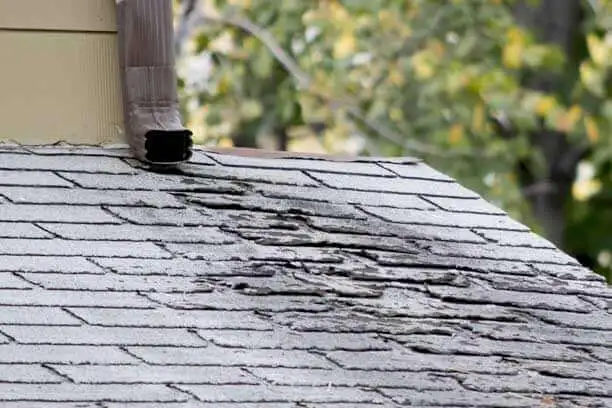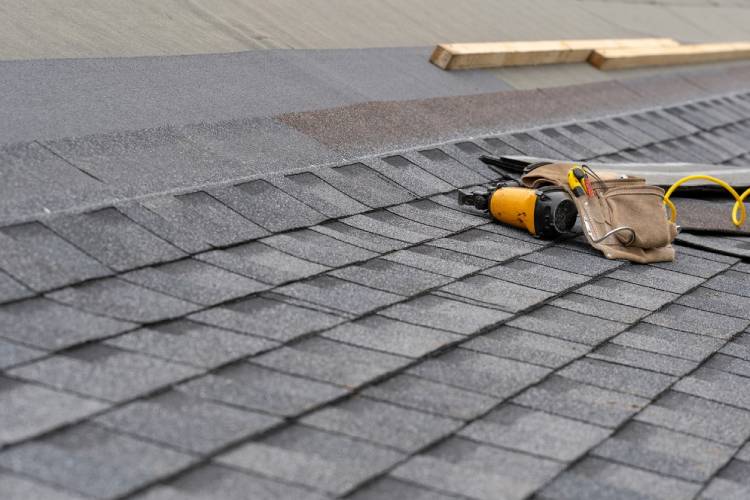Preventative Roofing System Maintenance: Tips to Stay Clear Of Expensive Repairs
To stay clear of expensive fixings, you ought to check your roof covering regularly for missing or harmed tiles, tidy your downspouts and seamless gutters to prevent clogs, and trim overhanging branches. These easy actions can greatly extend your roof's life-span, and there's plenty more you can do to safeguard your financial investment.
Examine Your Roof Covering Regularly
When you examine your roofing consistently, you can capture prospective concerns prior to they come to be costly repair work. Beginning by checking for missing out on, cracked, or curling shingles; these are signs that your roofing may require focus. Try to find any visible wear around chimneys, vents, and blinking, as these locations are frequently susceptible to leakages. Focus on any kind of sagging or unequal sections, which could suggest architectural problems.
After a tornado, it's necessary to evaluate your roofing for damages caused by high winds or hefty debris. Don't forget to examine the bottom of your roofing system in the attic room; appearance for indicators of wetness or mold, which can suggest leakages.
Tidy Seamless Gutters and Downspouts
Routine roofing system inspections naturally cause an essential job: cleaning your downspouts and rain gutters. Stopped up rain gutters can trigger water to support, causing possible roofing system leakages and structural damage. To avoid these problems, make it a routine to check your seamless gutters a minimum of twice a year, particularly after hefty tornados or fall when leaves collect.
When you cleanse them, begin by eliminating debris like leaves, twigs, and dirt. You can utilize an inside story or your hands, yet keep in mind to use handwear covers. After removing the particles, flush the gutters with water to assure appropriate water drainage. Do not fail to remember to examine downspouts for clogs. If water isn't moving openly, you may need to use a plumbing technician's snake or a hose pipe to get rid of the obstruction.
Address Overhanging Branches
Overhanging branches can position a severe threat to your roof covering, so it is very important to cut them routinely. Not just can they trigger damage during storms, yet they can also welcome parasites. Make it a practice to examine for any indicators of wear or damage to keep your roofing system in top shape.
Trim Routinely
Among one of the most vital action in roof maintenance is to cut those branches that hang too close to your home. Looming branches can cause significant problems, from particles build-up to possible damages during tornados. Routinely reducing these branches maintains your roofing system clear and lowers the risk of leakages and pests. Make sure to assess the wellness of the trees around your home; dead or weak branches present an also better risk. Objective to cut branches a minimum of six feet far from your roofline, assuring they won't enter into contact with your roof shingles. You don't require to tackle this job alone; employing a specialist arborist can guarantee secure and reliable cutting, protecting your roofing system and improving your home's overall appearance.
Evaluate for Damages
 roof repair
roof repair
Look for Harmed or Missing Out On Roof Shingles
It's vital to check your tiles routinely for any type of damage or missing out on pieces. If you find any type of problems, change missing out on roof shingles without delay to stop further problems. Additionally, watch on exactly how the weather condition affects your roofing, as extreme conditions can result in deterioration.
Evaluate Regularly for Damage
Routinely checking your roof covering for damage is essential to keeping its stability and extending its life-span. Inspect your roofing system after heavy tornados or strong winds, as these problems can dislodge or damage shingles. By making roofing inspections a regular component of your upkeep regimen, you can catch troubles early and save yourself from costly repair services down the line.
Change Missing Shingles Immediately
After checking for any kind of damage throughout your evaluations, you might locate that some shingles are missing out on or jeopardized. Don't wait to replace them; timely action can avoid more problems. Missing out on tiles expose your roofing to wetness, which can bring about leakages and more extensive damages in time.
Make sure to make use of roof shingles that match your roof's shade and design for a seamless look. Maintaining your roofing in top shape is important for protecting your home and preventing costly repair work down the line.
Monitor Weather Condition Influence Often
As tornados roll via your location, maintaining a close eye on your roofing becomes important. After each storm, take a moment to examine your roofing for any type of harmed or missing tiles. Search for granules in your rain gutters, which can indicate wear and tear. If you identify any type of shingles that are cracked, curled, or completely gone, attend to the issue immediately to prevent water leakages and additional damage. Climbing up onto the roofing isn't constantly needed; you can typically find problems from the ground with field glasses. Do not fail to remember to inspect for particles accumulation, as it can catch wetness and bring about rot. Regular monitoring assists you capture tiny concerns prior to they intensify, conserving you time and money over time.
 roof repair
roof repairEnsure Proper Ventilation
While many home owners concentrate on the outside and structural facets of their roofings, ensuring proper air flow is vital for maintaining its durability and effectiveness. Poor air flow can lead to warm buildup and dampness accumulation, which can trigger damage over time.
Proper ventilation not just enhances your roof's life expectancy but likewise improves energy efficiency, maintaining your home comfy year-round. By taking these actions, you're investing in your roofing system's wellness see more info and avoiding expensive repair work down the line.
Seek Indicators of Leaks
Proper ventilation helps protect against dampness build-up, yet also with excellent air movement, it's essential to keep an eye out for signs of leakages. Start by inspecting your ceilings and wall surfaces for water discolorations or discoloration, which can suggest a leakage above.
Outdoors, examine your roof for missing tiles, fractures, or harmed flashing, as these vulnerabilities can lead to leaks. Regularly examining for these indications will certainly aid maintain your roof's honesty and maintain your home safe and completely dry.
Arrange Professional Examinations
 roof repair
roof repair
Aim for at the very least one evaluation annually, preferably in the spring or loss, to align with seasonal adjustments. During these examinations, specialists can identify potential threats like missing out on shingles, deteriorated blinking, or indications of mold. They'll likewise look for particles buildup that can lead to water merging.
Do not wait for visible indications of problem; taking aggressive actions can extend your roofing's life expectancy. Purchasing regular assessments not just shields your home yet additionally provides you satisfaction understanding your roofing is in great problem.
Often Asked Inquiries
Exactly how Commonly Should I Carry Out Roofing System Inspections?
You should carry out roofing examinations a minimum of twice a year, preferably in springtime and fall. Normal checks assist you spot prospective problems early, conserving you time and cash on expensive repair work down the line.
What Devices Do I Need for Roof Covering Upkeep?
For roof maintenance, you'll require a strong ladder, harness, roof covering nails, a hammer, an energy blade, caulk, a trowel, and a flashlight. Do not fail to remember gloves and safety and security goggles to keep on your own safeguarded!
Can I Tidy My Roofing Myself?
Yes, you can cleanse your roof covering yourself. Simply ensure you have the right tools, wear safety and security gear, and adhere to appropriate techniques. It is necessary to be mindful to prevent mishaps and assure reliable cleaning.
Just How Can I Recognize Roofing Leakages Early?
To identify roof leaks early, you'll wish to inspect your roof covering consistently. Look for water stains, mold and mildew, or missing shingles. Pay interest after heavy rainfall, and don't wait to check the attic room for wet areas.
What Are the Signs I Required a New Roof?
If you see crinkled or missing out on roof shingles, relentless leaks, or water spots on ceilings,You'll require a new roofing. Additionally, if your roof covering's age surpasses twenty years, it's a good idea to consider replacement earlier rather than later on.
To avoid expensive fixings, you need to examine your roof covering regularly for missing or harmed roof shingles, clean your rain gutters and downspouts to stop clogs, and trim overhanging branches. Missing out on shingles subject your roofing to dampness, which can lead to leaks and even more considerable damage over time.
After each tornado, take a moment to inspect your roofing for any harmed or missing out on roof shingles.Outdoors, analyze your roof covering for missing shingles, fractures, or damaged flashing, as these vulnerabilities can lead to leaks.To identify roofing system leaks early, you'll desire to check your roofing system on a regular basis.